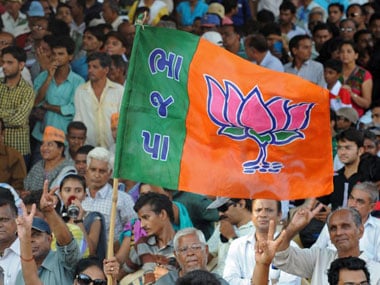Political parties in India depend heavily on donations from corporates, trusts and individuals for fighting elections as well as running their daily affairs. Section 29C of the Representation of People Act, 1951 requires political parties to submit contribution details received by them which exceed Rs 20,000 from any person or a company.
Donations from corporates to national parties have increased by 160 percent from the period of 2004-12 to 2016-18, says Association for Democratic Reforms (ADR).
The BJP received donations from the maximum number of corporates (1,731), followed by the Congress (151 corporates) between 2016-17 to 2017-18. The ADR report, also revealed that the saffron party received over Rs 900 crore as corporate donations, over 16 times more than what the Congress received during the same period.
During financial year 2016-17 and 2017-18, the BJP’s and INC’s voluntary contributions above Rs 20,000 from corporates or business houses were 94 percent and 81 percent respectively.
Prudent/Satya Electoral Trust was the top donor to two national parties, between financial year 2016-17 and 2017-18. The trust donated a total of 46 times in two years, and the total amount it donated in this period was Rs 429.42 crore. As reported by The Print, Satya Electoral Trust is promoted and run by one of India’s top conglomerates, Bharti Enterprises, whose companies include Airtel.
Between financial years 2016-17 and 2017-18, the largest amount of donations came from electoral trusts followed by real estate sectors and manufacturing sectors.
The Supreme Court gave a judgement in 2013 stating that all donors who have contributed a minimum of Rs 20,000 in either single or multiple donations should provide their PAN card details.
As reported by ADR, national parties have received Rs 2.59 crores from 76 donations which do not have PAN card details in the contribution form, and 98 percent of such donations went to the BJP.
The ADR suggested that the corporate which donate to the political parties should make details available in the public domain through their websites. The Central Board of Direct Taxes should also scrutinise annually the donation reports of all national, regional and unrecognised parties to discourage donations from shell companies or illegal entities, the organisation reported.


